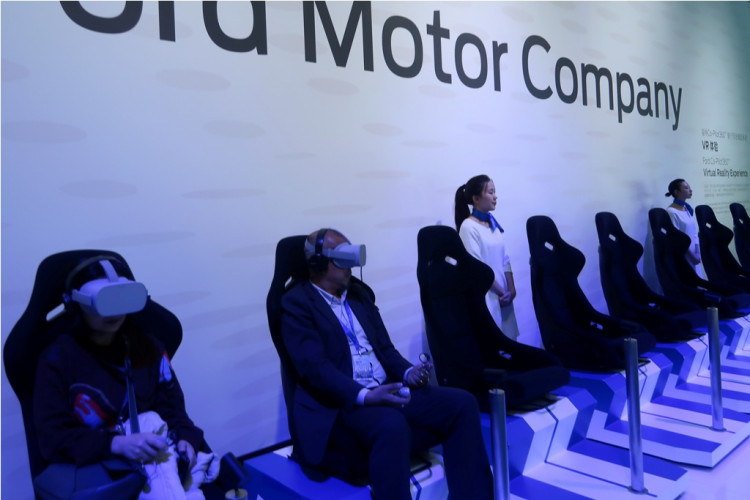China is still in the run for the world's most technologically advanced country as it has recently been predicted that the Asian nation could expand its augmented reality and virtual reality sectors further in the next five years.
"Chinese growth in the next five years could see it dominate AR/VR long-term - and not by a small margin. China has the potential to take more than $1 of every $5 spent," Digi-Capital said in a report in 2018.
Despite high and positive expectations for the sector, there have been challenges among theme parks and amusements parks that feature VR and AR games or technology.
While Beijing supports artificial intelligence and high-end technology initiatives, it frowns on games that could get minors addicted to battle-themed games.
Gaming giants like Tencent have also been adamant of supporting China's arcade realm due to mixed forecasts on the sector. Analysts said Tencent and other gaming companies are still waiting for virtual reality and augmented reality arcades to blow up into a sector that could stand on its own.
For one, Tencent, Alibaba Group, and Baidu, China's three major tech providers, are already investing in virtual reality, albeit not yet in the arcade sector. On the other hand, industry experts are expecting to see further investments in the virtual reality arcade sector in the country as more people show interest in the arcade games.
In a bid to help raise awareness about virtual reality in China, Wenzhou-based Seekers VR has been collaborating with the local government to establish a college that should help students learn more about virtual reality.
"There is no dominant competitor in the VR industry since it is so immature, and we will bring more and more opportunity," Seekers VR CEO, Belle Chen, said of the yet-to-bloom sector.
While augmented reality and virtual reality arcades are still developing and finding investors or partners, industry experts said China's adoption of 5G networks could help boost the sector.
Outside of gaming and arcade parks, education and tech training could also be positively impacted by VR development and 5G integration.
Meanwhile, the buzz in China's health sector and worldwide focused recently on the operation of a 41-year-old woman in Gaozhu People's Hospital. During the operation, cardiologist Huiming Guo assisted in carrying out the surgery while 400 kilometers away from the patient. Guo was in Guangdong General Hospital at that time.
Guo assisted in the operation through the use of 5G networks and virtual reality-based surgical tools. 4K ultra high definition live video was used so Guo can observe and provide instructions during the procedure. The surgery took four hours and became the second remote operation carried out in China.
According to industry experts, the use of virtual reality and 5G technology in the health sector, particularly in carrying out operations, could help in tight situations wherein. Specialists will be allowed to assist even without their physical presence in surgeries and other procedures.





